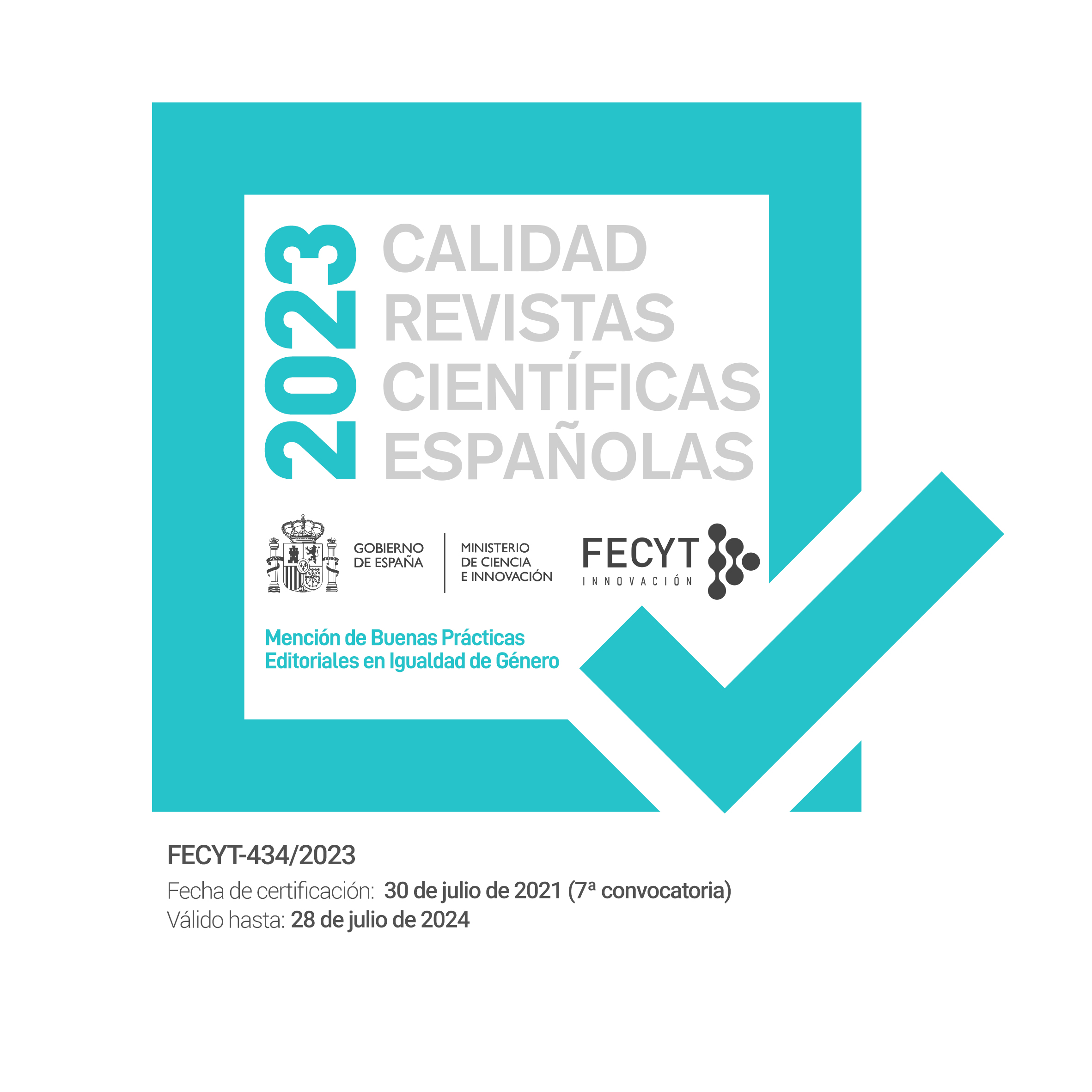Dietrich I von Mörs (1226-1262). Ejemplo paradigmático de la nueva nobleza medieval Alemana tras los tiempos de Inocencio III
Palabras clave:
Inocencio III, Sacro Imperio, condado de Moers, Investiduras, Edad Media alemana, PapadoResumen
Uno de los aspectos más importantes de la política exterior del papa Inocencio III fue su relación con el Imperio; como gran jurista y experto en teología, comenzó un movimiento por el cual se consideraba guardián y defensor de las almas de toda la Cristiandad, mientras que los príncipes laicos eran solamente los defensores físicos de sus vasallos. Se reservaba así el derecho a intervenir en política dentro de los territorios cristianos, y respetando la capacidad de los Electores (tres de los cuales eran a su vez príncipes eclesiásticos) se afirmó en su derecho de ratificar esa elección (o no), pues el mismo Imperio procedía en principio y por su propia motivación a la Iglesia. Así, tras la muerte de Enrique VI en 1197, Inocencio III impuso su gran autoridad para erigirse en árbitro y juez de los pretendientes al trono. El posterior conflicto entre el ya usurpador Otón IV y Felipe Augusto de Francia (batalla del Domingo de Bouvines, en 1214), transformó definitivamente las relaciones entre papado e Imperio, dejando profundas huellas en las tierras alemanas y una configuración política e institucional que nos proponemos demarcar con el ilustrativo ejemplo de los condes de Mörs.
Palabras clave: Inocencio III; Sacro Imperio; condado de Moers; Investiduras; Edad Media alemana; Papado.
Citas
<p>Abulafia, David<em>. Frederick II: a medieval emperor</em>. Oxford University Press, USA, 1988.</p>
<p>Allshorn, Lionel. <em>Stupor Mundi: The Life & Times of Frederick II, Emperor of the Romans, King of Sicily and Jerusalem, 1194-1250</em>. London, 2015.</p>
<p>Altgelt, Hermann. <em>Geschichte der Grafen und Herren von Moers</em>. Düsseldorf, 1845.</p>
<p>Arnold, Benjamin. <em>German Knighthood (1050-1300)</em>. Oxford, 1985.</p>
<p>Arnold, Benjamin. <em>Medieval Germany 500-1300. A Political Interpretation</em>. London, 1997.</p>
<p>Arnold, Benjamin. <em>Princes and Territories in Medieval Germany. A Study of Regional Power, 1100-1350</em>. Philadelphia, 1991.</p>
<p>Arnold, Benjamin. <em>Count and bishop in medieval Germany: a study of regional power, 1100-1350</em>. University of Pennsylvania Press, 1991.</p>
<p>Bachrach, Bernard S. “The Military Organization of Ottonian Germany, c. 900-1018: The Views of Bishop Thietmar of Merseburg.” <em>The Journal of Military History</em> 72 (2008): 1061-1088.</p>
<p>Bachrach, Bernard S. <em>Merovingian military organization, 481-751</em>. Minneapolis, 1972.</p>
<p>Bachrach, David S. “Restructuring the Eastern Frontier: Henry I of Germany, 924-936.” <em>Journal of Military History</em> 78-1 (2014).</p>
<p>Bachrach, David S. <em>Warfare in tenth-century Germany</em>. London, 2014.</p>
<p>Becher, Matthias. <em>Charlemagne</em>. New Haven, 2005.</p>
<p>Blumenthal, Uta-Renate. <em>The Investiture Controversy: church and monarchy from the ninth to the twelfth century</em>. University of Pennsylvania, 2010.</p>
</div>
<p>Bolton, Brenda. <em>Innocent III: studies on papal authority and pastoral care</em>. Ashgate, 1995.</p>
<div>
<p>Bouchard, Constance Brittain. <em>Sword, miter, and cloister: Nobility and the church in Burgundy, 980-1198</em>. Ithaca (NY), 2009.</p>
<p>Brown, Peter. <em>Authority and the Sacred: Aspects of the Christianisation of the Roman World</em>. Cambridge, 1997.</p>
<p>Busine, Aude. <em>Religious Practices and Christianization of the Late Antique City (4th – 7th centuries).</em> Leiden, 2015.</p>
<p>Carrasco, Rafael. <em>La empresa imperial de Carlos V y la España de los albores de la Modernidad</em>. Madrid, 2015.</p>
<p>Cassady, Richard F. <em>The emperor and the saint: Frederick II of Hohenstaufen, Francis of Assisi, and journeys to medieval places</em>. Chicago, 2011.</p>
<p>Chambers, David. <em>Popes, Cardinals and War</em>. New York, 2006.</p>
<p>Constable, Giles. <em>The reformation of the twelfth century</em>. Cambridge, 1998.</p>
<p>Contamine, Philippe. <em>La guerra en la Edad Media</em>. Barcelona, 1984.</p>
<p>Danuta Shanzer<em>. Romans, barbarians, and the transformation of the Roman world: cultural interaction and the creation of identity in late antiquity</em>. London, 2016.</p>
<p>Fischer Drew, Katherine<em>. The Laws of the Salian Franks</em>. Philadelphia, 1991.</p>
<p>Droege, Georg. <em>Verfassung und Wirtschraft un Kurköln unter Dietrich von Mörs (1414-1463)</em>. Bonn, 1957.</p>
<p>Duby, Georges. <em>El Domingo de Beauvines. 24 de julio de 1214</em>. Madrid, 1988.</p>
<p>Freed, John B. <em>Barbarossa: The Prince and the Myth</em>. New Haven, 2016.</p>
<p>Gillingham, John. <em>The Kingdom of Germany in the High Middle Ages (900-1200)</em>. London, 1971.</p>
<p>Gravett, Christopher, and Mcbride, Angus. <em>German Medieval Armies, 1300-1500</em>. London, 1997.</p>
<p>Gravett, Christopher. <em>German Medieval Armies 1000-1300</em>. London, 1997.</p>
<p>Hall, Michael C. <em>Pope Innocent III. The First Issues</em>. London, 2012.</p>
<p>Halsall, Guy. <em>Barbarian migrations and the Roman West, 376–568</em>. Oxford, 2007.</p>
<p>Harries, Jill. <em>Sidonius Apollinaris and the fall of Rome, AD 407-485</em>. Oxford University, 1994.</p>
<p>Heather, Peter. <em>Emperadores y Bárbaros: el primer milenio de la historia de Europa</em>. Barcelona, 2010.</p>
<p>Heather, Peter. <em>La Caída del Imperio Romano</em>. Barcelona, 2006.</p>
<p>Hirschberg, Karl. “Historische Reise durch die Grafschaft Moers von der Römerzeit bis zur Jahrhundertwende.” (1975).</p>
<p>James, Edward. <em>The Franks</em>. Oxford, 1988.</p>
<p>Martin Jones, Arnold Hugh. <em>The Later Roman Empire, 284-602: A Social, Economic, and Administrative Survey</em>. Vol. 2. London, 1973.</p>
<p>Keen, Maurice. <em>Medieval Warfare. A History</em>. Oxford, 2002.</p>
<p>Leyser, Karl. <em>Medieval German and Its Neighbours, 900-1250</em>. Vol. 12. London, 1982.</p>
<p>Mitchell, Otis C. <em>Two German Crowns: Monarchy and Empire in Medieval Germany</em>. Bristol, 1985.</p>
<p>Mommsen, Theodor Ernst, and Morrison, Karl F. <em>Imperial lives and letters of the eleventh century</em>. Cambridge, 2000.</p>
<p>Mullins, Edwin. <em>Cluny: In Search of God's Lost Empire</em>. London, 2008.</p>
</div>
<p>Nicolle, David, and McBride, Andrew. <em>The age of Charlemagne</em>. London, 1995.</p>
<div>
<p>Nicolle, David. <em>Carolingian cavalryman AD 768-987</em>. Vol. 96. New York, 2005.</p>
<p>Phelan, Owen M. <em>The Formation of Christian Europe: The Carolingians, Baptism, and the Imperium Christianum</em>. Oxford, 2014.</p>
<p>Powell, James M. <em>Innocent III: vicar of Christ or lord of the world?</em> Washington, 1994.</p>
<p>Rivera Quintana, Juan Carlos. <em>Breve historia de Carlomagno y el Sacro Imperio Romano Germánico: La desconocida historia de la Europa medieval y del emperador que la hizo renacer del oscurantismo y sentó las bases de la cultura de Occidente</em>. Madrid, 2008.</p>
<p>Rapp, Claudia. <em>Holy bishops in late antiquity: the nature of Christian leadership in an age of transition</em>. Vol. 37. Univ of California, 2013.</p>
<p>Reuter, Timothy. <em>Germany in the early Middle Ages c. 800-1056</em>. London, 1991.</p>
<p>Robinson, Ian Stuart. <em>Henry IV of Germany 1056-1106</em>. Cambridge University, 2003.</p>
<p>Salzman, Michele Renee. <em>The making of a Christian aristocracy: social and religious change in the western Roman empire</em>. Cambridge, 2002.</p>
<p>Sayers, Jane E. <em>Innocent III: leader of Europe</em>. London, New York, 1993.</p>
<p>Smith, Damian J. <em>Innocent III and the Crown of Aragon: the limits of papal authority</em>. Ashgate, 2004.</p>
<p>Vaughan, Richard. <em>Philip the Good: the apogee of Burgundy</em>. Vol. 3. England, 2002.</p>
<p>Wallace Hadrill, John M. <em>The Barbarian West 400 – 1000</em>. Oxford, 1988.</p>
<p>Weiler, Bjorn. <em>Kingship, Rebellion and Political Culture: England and Germany, c. 1215 – c. 1250</em>. London, 2011.</p>
<p>Weiler, Björn KU, and MacLean, Simon. <em>Representations of power in medieval Germany 800-1500</em>. Brepols, 2006.</p>
<p>Weinfurter, Stefan. <em>The Salian Century: main currents in an age of transition</em>. University of Pennsylvania, 1999.</p>
<p>Wickham, Chris. <em>Medieval Rome: Stability and Crisis of a City, 900-1150</em>. Oxford, 2014.</p>
<p>Wilson, Peter H. <em>The Holy Roman Empire: A Thousand Years of Europe's History</em>. London, 2016.</p>
<p>Wise, Terence. <em>Medieval European Armies, 1300-1500</em>. Oxford, 2000.</p>
</div>
<p>Wood, Ian N. <em>The missionary life: saints and the evangelisation of Europe, 400-1050</em>. Edinburgh, 2001.</p>
<p>Wood, Ian. <em>Franks and Alamanni in the Merovingian period: an ethnographic perspective</em>. Vol. 3. Rochester, 1998.</p>
<p>Wood, Susan. <em>The proprietary church in the medieval West</em>. Oxford, 2006.</p>









